
The Haitian Times
www.haitiantimes.com
By Murdith Joseph
Overview:
Journalists Tysson Lartigue and Frantzsen Charles are among the latest victims gunned down in the Port-au-Prince area, where thousands of families are left in mourning and feeling increasingly helpless
This story is part of a special investigation into Haiti’s gang crisis and potential solutions. To view the full series visit our special section, Gangs in Haiti: A deeper look.
PORT-AU-PRINCE — All Laina Alexis wants is to get her husband’s body back.
But the day after learning Tayson Lartigue and his colleague Frantzsen Charles, two journalists, were shot dead in Citè Soleil, all the police gave Alexis was an appointment to return in three days for the necessary follow-ups.
“My friends, my brothers, my compatriots, give me the body of my husband,” she told The Haitian Times, in between heavy sobs.
“Ever since Sunday, I haven’t been living,” she says. “Tayson is gone, leaving me with his daughter who is crying out for her father and not eating. I do not know what to do. My husband was everything to me.”
Families grieving because of gang-related killings has become a daily occurrence in Haiti as neighborhood bandits gain more weapons and ruthlessness. Alexis is the latest addition among hundreds of families not only left reeling with a loss, but also dealing with the reality of providing proper burials and mourning rites for their loved ones, many of whom suffer atrocities in their final moments.
Between January and June, more than 930 were killed, according to the United Nations, in the metro area of about 3 million. Since then, scores have fallen on a near daily basis, at times in clusters of intense gun battles. Lately, some gangs have set people on fire, as they did in Croix-des-Bouquets to Josette Fils Desanclos and her two daughters Sardjie and Sherwood Sondjie.
By one count, at least 150 gangs exist in Haiti, according to Fondasyon Je Klere (FDJ), a human rights group. Haitian officials have not made available statistics on the number of killings reported.
Kidnappings, killings lead to more deaths
But on Sept. 13, it was a Digicel employee, Marie Lydie Duvivier. The 46-year-old was killed during a kidnapping attempt on her way to the United States Embassy where she had an appointment.
In a chilling recount on Radio Caraibes, the Duvivier’s brother said he called her phone to see where she was and a stranger answered.
‘Are you a person of courage,” the speaker said.
‘Yes,’ the brother said he answered.
‘Well, man, I have to tell you. We were in the middle of the kidnapping, but something happened and we had to kill her,’ the stranger said.
Still reeling from the news, the speaker then told Duvivier’s brother he could find her body in Croix-des-Bouquets, on the road to a village called Noailles.
One day before Duvivier went missing, it was Lartigue and Charles who met their demise.
The pair were with a group of seven journalists who went there to interview the mother of Christella Delva, 17. The girl had been killed while riding in a van on Sept. 10, when a stray bullet struck her in the head.
After the interview, the team was leaving Cité-Soleil. As they passed through an area called “Dèyè Mi” — near a shuttered Doctors Without Borders hospital — gunfire erupted.
“I saw four to five men, members of the armed gang G9…who guard the area,” recounted Ricot Librun, who was with the group. “One of them shot at Frantzen and Tayson’s motorcycle, which was at the head of the group of journalists following on motorcycles.”
“They were shooting so much, I had to put the bike on reverse and go back to avoid the bullets,” Librun said. “I fell on my arm trying to turn back with the bike. Members of the Ti Gabriel gang who were in the area fired back to push back the G9 members.”
Librun fled into the bushes, as the team fled in different parts to save their lives. Librun ended up in an area called “Brooklyn,” where he met four others from the team.
Frantzen and Tayson had been shot and dragged away by the G9 members, Ricot later learned. The bandits took the motorcycle too.
Finding the bodies adds to trauma
Two days later, while mourning their colleagues, the survivors and victims’ families must also locate the deceased.
“We have been trying to stay strong,” Librun said. “What matters most to us is being able to find the bodies of our colleagues. We have taken steps with no results yet so far.”
To that end, Alexis, Lartigue’s wife, went to the police. That’s when they told her to come back in three days.
“I don’t need the Haitian government to give me justice in a country where there is none,” Alexis said. “All I ask for is my husband’s body to pay him my last respects. If the government could give me his body as a gift, that would be a relief.”
Read more about about Haiti’s gangs in our special section, Gangs in Haiti: A deeper look.

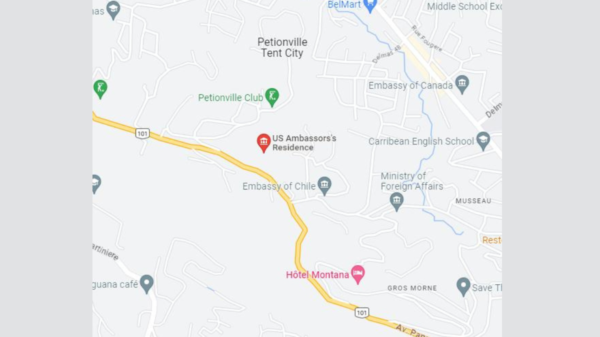
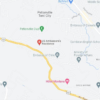
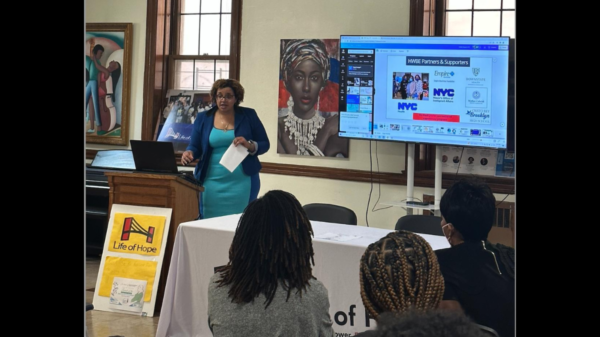
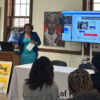
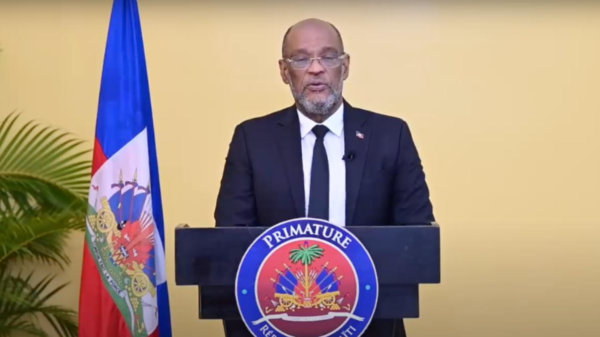


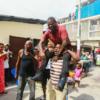
You must be logged in to post a comment Login